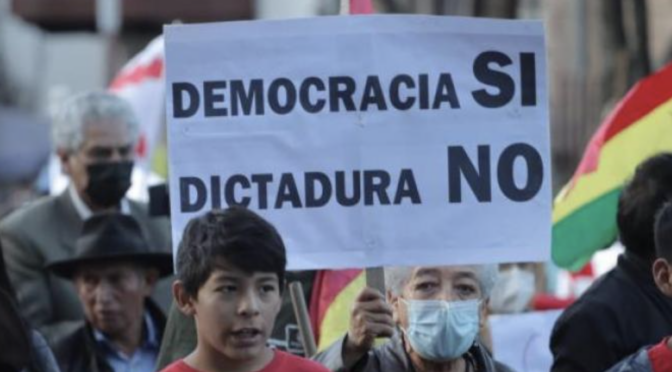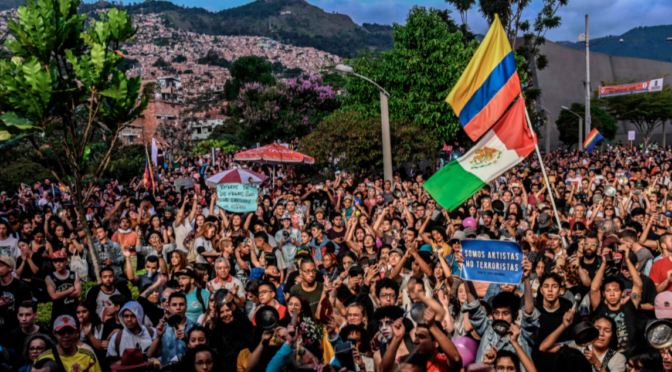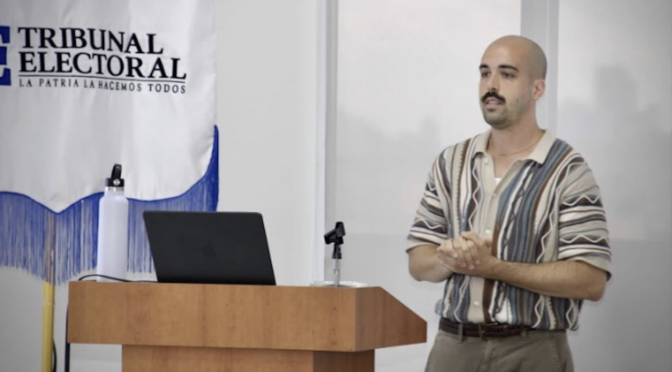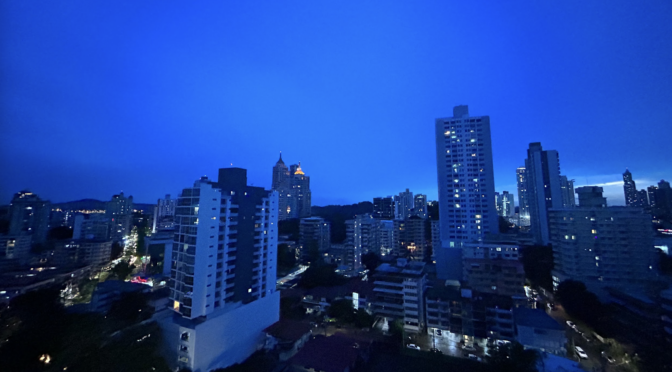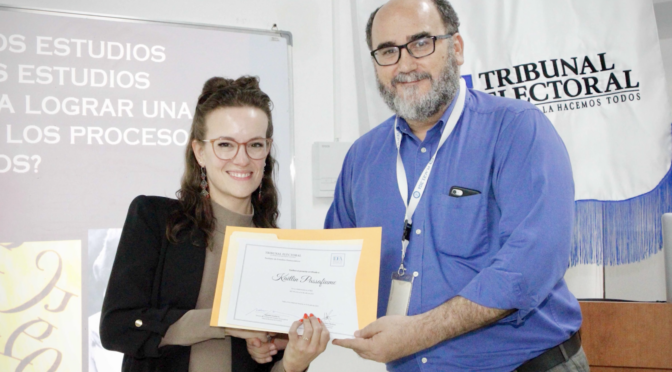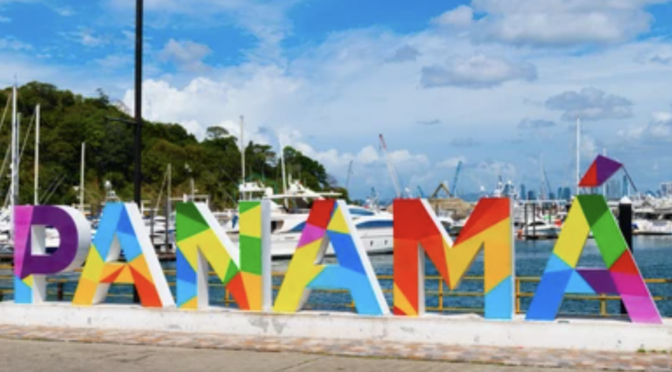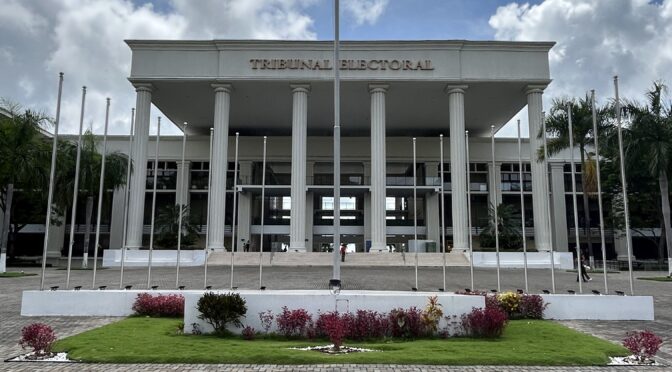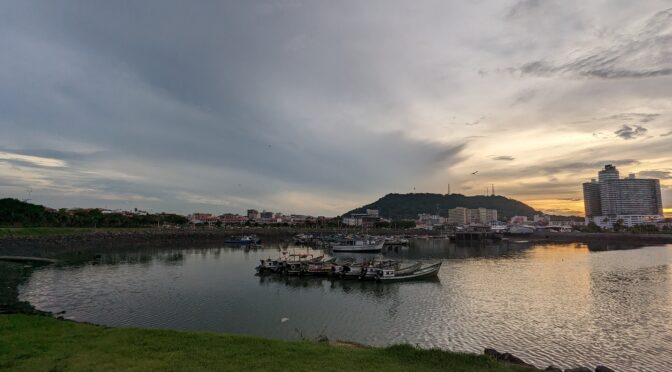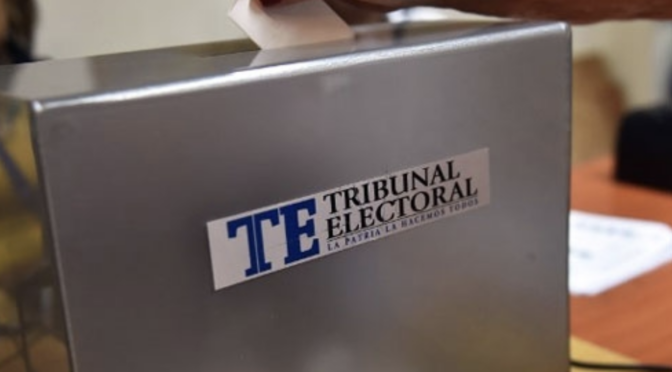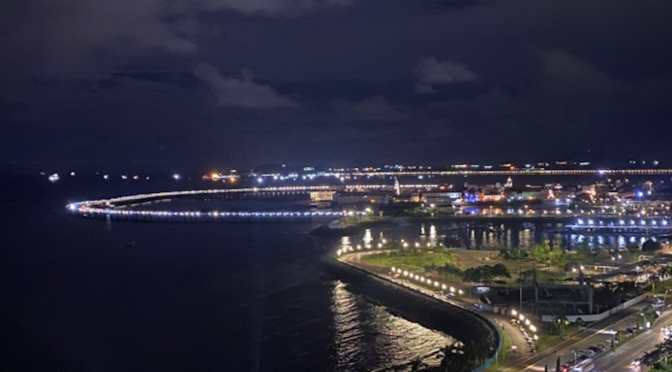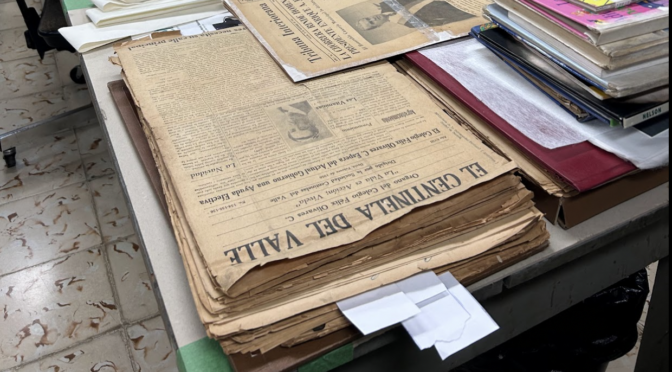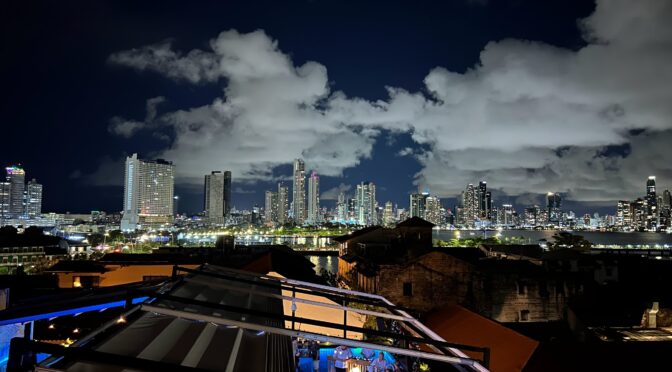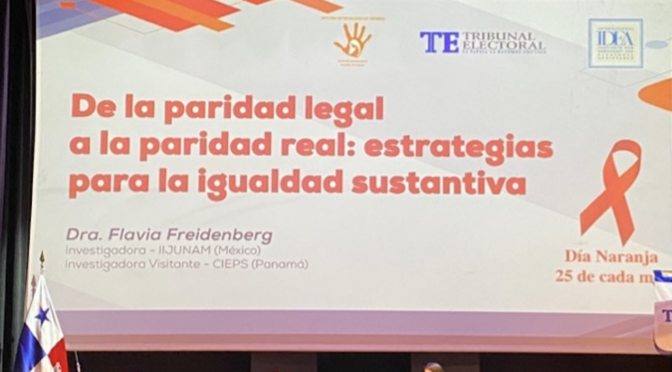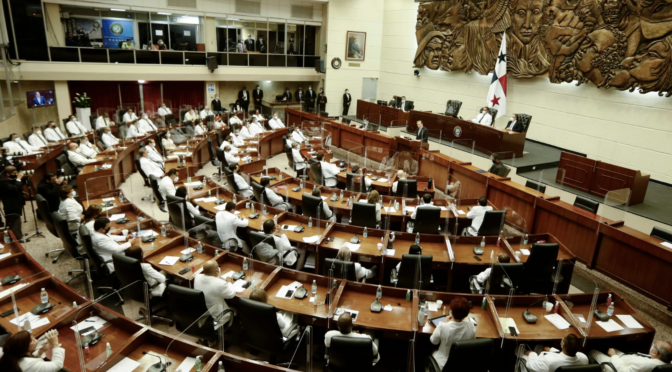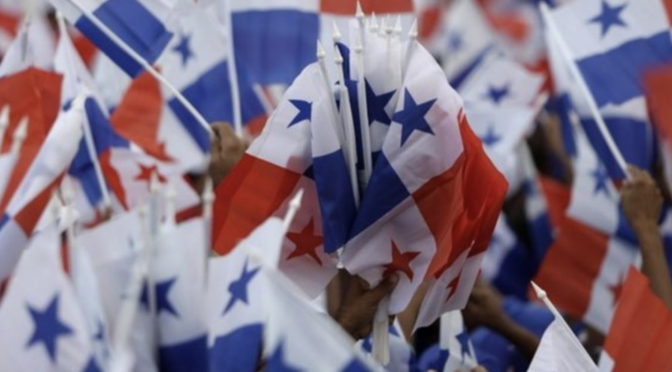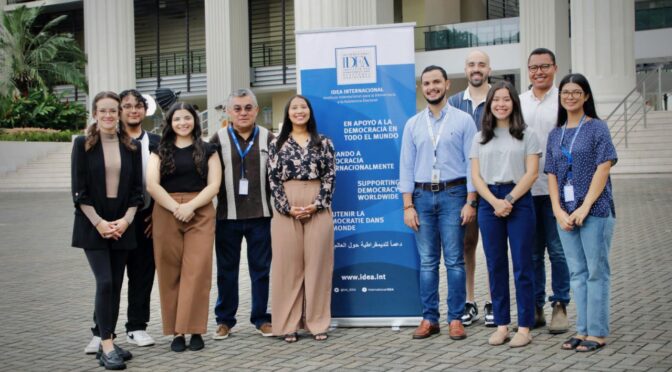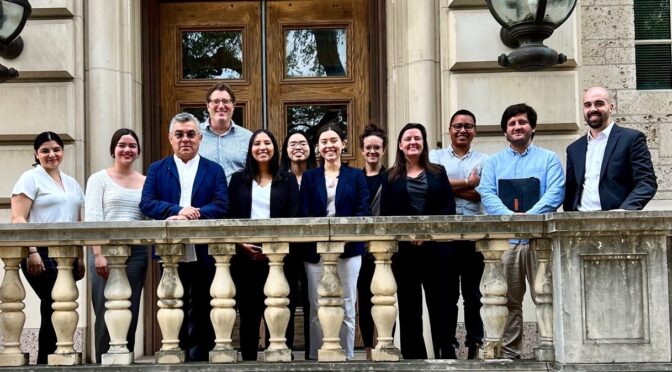Fellows in the University of Texas at Austin’s Embedded Scholars Program won an award for their research conducted in the spring Embedded Scholars class. Fellows Andreana Faucette and Paulina Licon won the 2024 Patman Center Research Award for Advancing Democracy, which recognizes “exceptional insight and dedication to advancing the cause of democracy.” Their research was conducted in the spring class taught by Ashley Moran on democratic constitutional design that prepares students for field work in democracy assistance.
Continue reading Embedded Scholars Win Democracy Research AwardTag Archives: Panama
2024 Embedded Scholars Head to Latin America
The University of Texas at Austin’s Embedded Scholars program is sending its 2024 cohort to Latin America later this month to support democracy and electoral assistance programs this summer. With at least 73 countries—eight in Latin America alone—holding elections this year, amid rising polarization and democratic challenges, the stakes are high for national and international actors working to promote free and fair elections and robust democracy.
Continue reading 2024 Embedded Scholars Head to Latin AmericaFellows Share Research on Participation, Culture, and Democratic Resilience
The 2024 Embedded Scholars conducted research this spring on a range of pressing challenges and opportunities for democracies today. Students shared their research this week, giving presentations on the role of public participation, civic and constitutional culture, and democratic resilience in preserving and advancing democracy.
Continue reading Fellows Share Research on Participation, Culture, and Democratic ResilienceFellows Share Research on Disinformation and Backsliding
In their internship class this spring, the 2024 Embedded Scholars conducted research on key challenges facing democracies today. Their research assessed current findings on these challenges globally and the sociopolitical, legal, and constitutional dynamics shaping these issues in Latin America. Today, students presented their research on disinformation in elections and democratic disaffection and backsliding.
Continue reading Fellows Share Research on Disinformation and BackslidingVideo Diary: Day in the Life of Fellows in Panama
UT fellow Matthew Martin and International IDEA provide a video tour of a day in the life of fellows working for International IDEA in Panama. Matt discusses his work analyzing constitutional performance and takes us on their visit to the National Archives of Panama, exploring the political and cultural history of Panama.
Continue reading Video Diary: Day in the Life of Fellows in PanamaUnderstanding Political Risk
By Frances Parra, Undergraduate student at the UT McCombs School of Business
As my time in Panama came to an end, I was tasked with the professional culmination of my internship, as well as the goodbyes to the place and people I called home for the entirety of the summer. My research for International IDEA had explored topics such as political risk, governance, and foreign policy in Latin American countries. Although my primary focus was Latin America, my investigations delved into the foreign relations of Latin American countries with regions around the world, including Asia, Europe, and North America. Overall, it sought to understand these topics as they pertain to democratic governance and society in Latin America today and in the future.
Continue reading Understanding Political RiskIDEA & Electoral Tribunal Share UT Student Work in Latin America
International IDEA and the Institute of Democratic Studies (INED) at the Electoral Tribunal of Panama released a video sharing the work of the University of Texas at Austin (UT) students who interned with them in Summer 2023 as part of the Embedded Scholars program. The Embedded Scholars program is a partnership between the UT Government Department and the Comparative Constitutions Project to train students to work in democratic and constitutional development.
Continue reading IDEA & Electoral Tribunal Share UT Student Work in Latin AmericaComms, Elections, and Personal Transformation
By Adriel Bustillos, Undergraduate student in the UT Government Department and Plan II Honors Program
Embarking on an internship with International IDEA in Panama City was been a remarkable and transformative experience. Over the course of my time in Panama, I had the opportunity to contribute to vital projects, including designing new communications materials for IDEA’s regional work and conducting research on elections and runoff processes in Latin American and Caribbean countries. Beyond professional growth, the internship also allowed me to immerse myself in the vibrant Panamanian culture and expand my horizons. The overall experience gave me a new sense of learning, but one that will always be held close to my heart in years to come.
Continue reading Comms, Elections, and Personal Transformation2024 Fellowship Applications Due Nov. 15
The 2024 Fellowship Application is now open for UT students to apply for the Summer 2024 fellowship focused on democratic institutional development in Panama. Applications are due by November 15, 2023.
Continue reading 2024 Fellowship Applications Due Nov. 15The State of Democracy in Latin America
By Francisco Alvarado-Quiroz, Graduate student at the UT LBJ School of Public Affairs
What we know collectively as “Latin America” contains, depending on whom you ask and how you count, some 21-plus countries. The landscapes contain high-altitude cities, untouched jungles, and beautiful beaches. While you could get away communicating in Spanish throughout most of the region, there are an uncountable number of languages and dialects.
Continue reading The State of Democracy in Latin AmericaElection Preparation in Panama
By Kaitlin Passafiume, PhD candidate in the UT Spanish and Portuguese Department
After my return from Panama, I am full of reflections about my time spent there working with International IDEA and its partners at the Institute for Democratic Studies (INED). My final month working in these capacities was different from the first, as it was more hands on and largely interactive. In the first portion of my internship, I worked in a largely independent way, developing memos that analyzed youth voting programs across Latin America. In the last half of my internship, I was very much part of a team.
Continue reading Election Preparation in PanamaLearning across Cultures
By Alexys Aquino, Undergraduate student in the UT Government Department, International Relations and Global Studies Department, and Spanish and Portuguese Department
My last week in Panama went by so fast. All of a sudden, I was on a plane back to Texas and, just like that, my six weeks there were over. Now that I’m back in the U.S., I feel so aware of the things I learned in Panama and the aspects of life there that I really valued. Some of them I can implement in my life, and others I’ll just have to look upon fondly.
Continue reading Learning across CulturesThe Pull of History
By Francisco Alvarado-Quiroz, Graduate student at the UT LBJ School of Public Affairs
I knew very little about Panama before arriving in early June. From what I remembered from classrooms and books, there was a canal the French started, and the Americans finished. Carter gave it back. The United States invaded in 1989, and now the capital city is awash with investment money building a skyline akin to Miami or Hong Kong. There is, of course, a lot more to the story. And in my four weeks here the team at IDEA has shown us Panama’s long effort to form a durable democratic government, and the United States’ involvement.
Continue reading The Pull of HistoryForeign Policy by Day, Culture by Night
By Frances Parra, Undergraduate student at the UT McCombs School of Business
As an International Business student, I have eagerly awaited the chance to study and work abroad in a meaningful way. I realized that such work would take me out of my comfort zone and test my professional and language skills. It is with those feelings that I approached my position at International IDEA’s offices in Panama.
Continue reading Foreign Policy by Day, Culture by NightWomen’s Political Participation in Panama
By Alexys Aquino, Undergraduate student in the UT Government Department, International Relations and Global Studies Department, and Spanish and Portuguese Department
I’m happy to report that humidity is universal, although sometimes it seems Texas has a monopoly on it! Along with the humidity, Panama has no shortage of lush greenery, kind strangers, and strong coffee. I had never been to Central America before this internship with International IDEA and UT Austin, so I wasn’t sure what to expect. Now that I’ve been in Panama for over a month, I’ve started to get the hang of it all, from using the metro to navigating the temperamental elevators at the Electoral Tribunal. Despite all that I have learned, I’ve found that working in a multinational environment on topics as important as gender parity in Panamanian politics teaches you something new constantly.
Continue reading Women’s Political Participation in PanamaConstitutional Performance in Panama
By Matt Martin, PhD student in the UT Government Department
The time I’ve spent in Panama has been nothing short of a privilege. To work alongside International IDEA and have a peek into the world of democratic and electoral assistance was invaluable, both on a professional and personal level. Most of my time was spent at the Tribunal Electoral (“Electoral Tribunal,” or TE), where International IDEA-Panama is located. The TE houses not only the country’s civil registry, national ID directorate, and specialized electoral body but also the Instituto de Estudios Democráticos (“Institute of Democratic Studies,” or INED). I worked alongside the director of INED, Salvador Sánchez, and several other researchers on his talented team. Their kindheartedness made me feel more than welcome as an intern.
Continue reading Constitutional Performance in PanamaFirst-Ever Symbolic Youth Voting Campaign in Panama
By Kaitlin Passafiume, PhD candidate in the UT Spanish and Portuguese Department
As I wrap up the initial month of working with International IDEA at the Electoral Tribunal in Panama, I reflect on the diverse experiences that I have enjoyed in a short period of time. My completion of this internship signals an ability to successfully pivot from an academic background, using my critical humanities formation for public-facing work going forward. I remain convinced that cultural considerations have their place in governmental and extra-governmental projects, and I am heartened to find that the public arena in Panama considers and even encourages diverse perspectives.
Continue reading First-Ever Symbolic Youth Voting Campaign in PanamaFellows Arrive in Panama!
Six graduate and undergraduate UT students started their Summer 2023 work today in Panama at the International Institute for Democracy and Electoral Assistance (International IDEA).
Francisco Alvarado-Quiroz, Alexys Aquino, Matt Martin, and Kaitlin Passafiume are working at the IDEA Panama Office, supporting a range of democracy assistance projects including evaluations of the constitution’s performance, women’s participation in elections, and the first-ever Panamanian youth voting campaign.
Continue reading Fellows Arrive in Panama!2023 Fellows Develop New Public Consultation
The 2023 Embedded Scholars have been preparing for their summer work abroad through a new government course created for the program — Research in Democratic and Constitutional Development — taught by Ashley Moran. The course delves into issues in democratization, constitutional design, and democracy assistance, engaging students in research in these areas. This semester, the students worked with Professor Moran and the Comparative Constitutions Project to design a new deliberative consultation framework to research public views on constitutional issues.
Continue reading 2023 Fellows Develop New Public ConsultationUT, IDEA, and CCP Partner to Engage Students in Democracy Aid
This story originally appeared on the UT College of Liberal Arts website. A version of this story also appeared later on the UT Texas Global website.
Students from The University of Texas at Austin will spend the summer in Central and South America working on democracy and election assistance through a new partnership between UT’s Department of Government and the International Institute for Democracy and Electoral Assistance (International IDEA).
Continue reading UT, IDEA, and CCP Partner to Engage Students in Democracy Aid